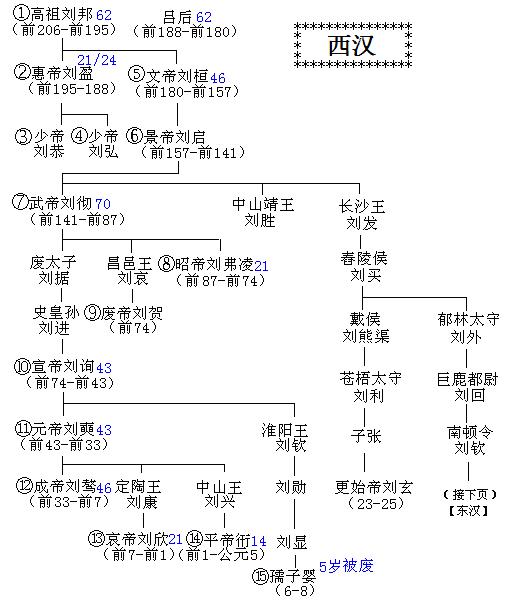(单词翻译:单击)
Han Dynasty
汉朝
General
概况
At the end of the Qin Dynasty (221—206 B.C.), a present army led by Liu Bang conquered the Xianyang City in 207 BC, putting an end to the despotic period.
秦朝(公元前221年至公元前206年)末期,刘邦率领的军队于公元前207年占领了咸阳,结束了这个暴虐的时代。
After four years war with his rival, Xiang Yu, Liu Bang finally got command of the whole country and established his reign----Han Dynasty in 202 BC.
经过和项羽四年的战争,刘邦最终控制了整个国家并于公元前202年建立了他的王朝——汉朝。
The new dynasty has been divided into two historical periods.
这个新朝代被分为两个历史时期。
The first period is called the Western Han (206 B.C. ---- 24 A.D.) as the capital was Chang’an (the present city of Xian in Shaanxi Province).
第一个时期是西汉(公元前206年至公元24年),都城为长安(今天的陕西省西安市)。

The second period is known as the Eastern Han (25 A.D.--- 220 A.D.) as Luoyang became the capital city.
第二个时期是东汉(公元25年至220年),都城为洛阳。
The Han Dynasty ruled over the second unified Chinese empire.
汉朝是第二个统一中国的朝代。
Based on the unification created by Emperor Qin Shi Huang, a variety of different cultures were integrated.
以秦始皇建立的统一为基础,不同的文化相交融。
This laid the foundation for what became the common culture of Han.
这位汉朝的普众文化建立了基石。
It was during this period that the Han ethnic group established itself as the core nation of China.
正是在这个时期,汉族成为了中国的核心民族。
It was as a consequence of their more advanced civilization that the Han people assumed a dominant position.
也许是因为汉族人民拥有更为先进的文明,他们占据了支配地位。
This dominance still exists in China today, regardless of the many changes that have taken place over the centuries.
不管在时代变迁间经历了多少变化,汉族人的这种优势直到今日仍然存在于中国。


